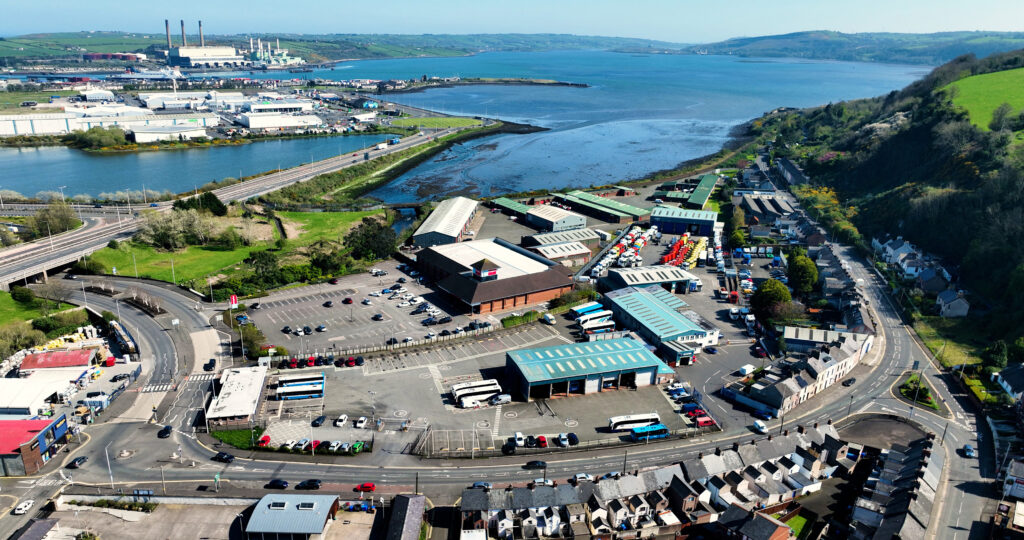Port authorities at Larne in Northern Ireland have seized roughly 600kg of illegal meat that originally entered the UK from mainland Europe.
Farmers Weekly reports that the meat was smuggled into Northern Ireland on the Stranraer to Larne ferry, raising concerns at the ease at which it evaded detection.
The vehicle is reported to have entered the UK at either Dover or another port in eastern England, and travelled through the country unchecked and undetected, with the meat transported in loose packaging, thereby presenting all sorts of disease risks.
The worrying find was discussed at a roundtable meeting of Department of Agriculture, Environment and Rural Affairs (Daera) officials and industry stakeholders on January 17.
An industry source, who attended the meeting, said: “The discovery begs the question what the port authorities in Northern Ireland are doing that those at ports in Britain are not.
“Having entered the UK, the consignment exited Britain at the Scottish port of Stranraer, before it was eventually intercepted at a third checkpoint in Larne, Northern Ireland.
“Every port’s health officer has a duty to have an enquiring mind when a vehicle appears to be suspicious. It would be fascinating to find out what made the officers at Larne stop the vehicle after two other UK ports had allowed it through.”
A Daera spokesperson confirmed that staff in Larne Port seized 601kg of product of animal origin that arrived from Great Britain on 16 January 2025. “The product was not permitted entry to Northern Ireland as it was judged to be non-compliant with sanitary and phytosanitary requirements,” the spokesperson said.
Dover concerns
The discovery will heighten concerns over the insufficient checks in place at Dover, in particular, both for illegal meat imports and via the commercial route, given the obvious flaws in the Border Target Operating Model (BTOM).
The Dover Port Health Authority has done a tremendous job in seizing around 170 tonnes of illegal meat meat at the port since September, despite only operating at around 20% coverage due to financial constraints.
At a recent Environment Food and Rural Affairs (Efra) committee meeting in Westminster, Lucy Manzano, head of the Dover Port Health Authority, told MPs that these vital checks for illegal meat at the port might have to cease within seven weeks, if the DPHA does not receive an adequate funding settlement from Defra.
“There are significant gaps in the controls that are taking place. Defra is not communicating regarding the intelligence or understanding of what’s actually happening on the ground, which is fairly fundamental in this,” she said.
“If our funding is not secured, certainly within the next seven weeks, coming into year-end, these checks will stop because the local authorities are not in a position to fund them.”
The EFRA committee has since written to Baroness Hayman, the Defra Minister for biosecurity and borders, to request clarity on funding for DPHA and the claims at the hearing that products from Germany continued to enter the UK for days after the government introduced a ban due to its FMD outbreak in January.
The industry is also calling for the government to undertake a far-reaching review of the BTOM amid fears imported are easily evading checks, including via the the ‘timed-out decision contingency feature’ (TODCOF) auto-clearance system.
According to FW, the industry source added: “All sides are becoming exorcised about successive governments’ lack of interest in securing our borders from the increasing threat of exotic diseases.
“Isn’t it time that the UK considered illegal meat imports to be as much of a threat to the economy as that posed by drugs and firearms?”
Government response
A UK government spokesperson said: “This government will never waver in its duty to support the UK’s biosecurity and preserve our food supply.
“While the UK has never had an outbreak of African swine fever, we are not complacent and have strict import controls in place.
“We are also unequivocal that importing illegal meat products is unacceptable, and suspected products are routinely checked at the border to ensure they don’t reach our shores.”




